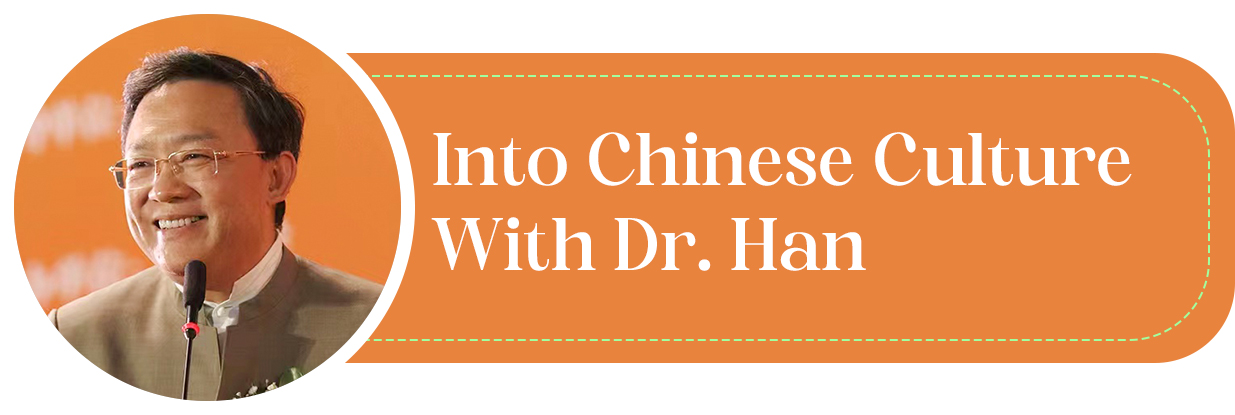The values of goodness and beauty in Chinese civilization (4)
Writer: Han Wangxi | Editor: Zhang Chanwen | From: Shenzhen Daily

4. Heaven and humans
“The Analects” records Confucius as saying, “Set your aim for the way, hold on your virtue, rely on your benevolence and explore widely in your cultivation of the arts.” The missions of Confucian teachings are to explore the relationship between heaven and humans, and understand the changes of the past and present.
Confucianism’s ontology focuses solely on virtue. Confucius took benevolence as the essence of his theories, while Mencius believed that if we give full play to people’s inner compassion, shame, modesty and justice and we fully extend the human nature, we will understand our destiny. The Confucian classic “Zhongyong” (“The Doctrine of the Mean”) points out that “sincerity is the way of heaven, while the attainment of sincerity is the way of men.” Confucianism combines the origin of the universe with moral cultivation.
Dong Zhongshu (179-104 B.C.), a philosopher, first demonstrated “the unity of heaven and humans,” up until the Song-Ming Neo-Confucianism that took on the obligatory role of delivering and investigating the way. Cheng Hao (1032-1085), Cheng Yi (1033-1107) and Zhu Xi (1130-1200) regarded “reason” as the way; Zhang Zai (1020-1077), Wang Tingxiang (1474-1544) and Wang Fuzhi (1619-1692) regarded energy as the way; while Lu Jiuyuan (1139-1193) and Wang Yangming (1472-1529) regarded “mind” as the way.
Even though the philosophers insisted on different approaches to understanding the way, all of their thoughts share one thing in common — merging ontology and ethics. Therefore, the individual is able to undertake an understanding of both human thought and the origin of the universe. In conclusion, heaven and humans can become one through keeping tuned to one’s mind, nurturing character and insisting upon sincerity.
‘Set your aim for the way’
“Who is able to leave a room without going out through the door? How is it, then, that no one follows the way?” said Confucius when talking about the way. Based on Confucius’ teachings, the way has become a universal principle.
“Zhongyong” also clearly illustrated the way: “The way that a superior person pursues reaches wide and far and yet is secret.” A note from Zhu reads, “Wide means wide applications, while secret shows delicate inner secrecies.” Zhu continued, “From the growing of all creatures to the birds’ flying up above and fishes’ wanderings below in the ocean, the principle of “wide” is universally applicable. However, one may not always see the flux behind these actions, hence “secret.” Therefore, mastery of both infinity and finiteness should make up the aspiration of man.
‘Hold on your virtue’
Holding on your virtue asks people to practice good behaviors and gain noble characters, both of which originate from the way of heaven. “The way engenders beings, the virtue nourishes them, materials give them shape and the forces of nature perfect them. This is why all beings revere the way and honor the virtue. Dignity of the way and nobility of the virtue reside in the fact that they do not place themselves as masters of beings, but let them evolve naturally,” said Laozi.
Guanzi further elaborated on the way and virtue. “The way is illusion, while the virtue is to nurture all creatures,” he said. “The virtue is the actual appearance of the way, upon which everything can grow, and one’s mind can recognize the essence of the way. Therefore, the virtue equals acquisition, which means that what you want has been realized.” Zhu also said, “A person with virtues follows the way of heaven and his mind is enriched.”
‘Rely on your benevolence’
Confucius gave his insight on how to become benevolent. He said, “If you want to make a stand, help others make a stand; if you want to reach your goals, help others reach their goals; consider yourself and treat others accordingly, as this is how you become benevolent.”
In Confucius’ view, the ultimate moral standard is benevolence, which shows proactiveness and independence of one’s individual personality. Confucius took benevolence as an individual’s moral discipline, and one’s natural expression of moral rationality and moral emotion.
“A superior person does not go against benevolence even for just a short period of time or in time of urgency or distress.” This sentence again reflects the Confucianists’ connections of sincerity and trueness, good and beauty.
First, sincerity reflects the realm of truth where universe and individuals become one; as “Daxue” (“Great Learning”) puts it, “seeking results with sincerity, one will not be far away even without any finding.” Second, sincerity is a great virtue of benevolence. One must treat others with sincerity in order to deal with interpersonal relationship fairly and magnanimously. And last, sincerity is the best beauty. It is the realm of heaven and earth that is speechless, selfless and shared with all things.
(The author is a cultural scholar.)
(Translated by Chen Siqi)